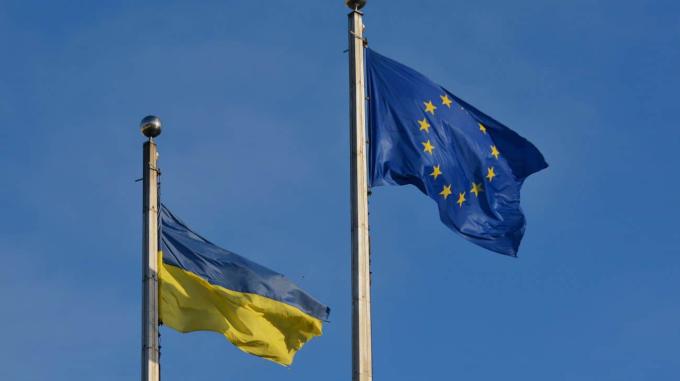EU not yet considering separating Ukraine and Moldova’s paths to accession

The European Union is not currently planning to separate the processes of Ukraine and Moldova’s accession to the union, despite recent statements by high-ranking officials, including the President of Romania. This is confirmed by sources close to European institutions, as well as analysts and journalists covering the topic in Brussels. At the same time, the question of whether both countries will obey a single green light on their path to the EU remains open, and so far there is no evidence of radical changes in the procedure. On the eve of the Moldova-EU summit, which took place on July 4, Romanian President Nikusor Dan made a rather ambiguous statement, announcing that soon, during this event, they plan to open the first cluster for Moldova in the association process with the EU. However, that same evening he was forced to change his views and call his words a "mistake", emphasizing that these were only initial discussions, not an official decision. Another important detail is that the decision to open negotiations on a particular cluster is not made at the summit, but more formally - after certain procedures. At the same time, as it turned out, all 27 EU member states must agree on such decisions, and no one can announce them in advance without the agreement of the entire European community. From official and internal sources in Brussels, "EuroPravda" learned that at present the issue of a separate path of accession for Moldova and Ukraine is not even a subject of discussion. The conclusions on further EU enlargement in the documents published by the European Council have the same content for both countries, emphasizing the unity of the process and the absence of separate scenarios. In particular, while the issue of Ukraine did not receive full support during the summit due to Hungarian resistance, the issue of Moldova's accession received the support of all 27 EU member states. This once again confirms this country as a candidate with unconditional support from the majority of partners, while Ukraine continues to remain in the so-called "joint process", but under a single "green light". For more information on the internal schedule and positions of EU member states on future enlargement and potential separation of processes, see the material dedicated to the summit, which highlights why Hungary and a group of other countries insist on maintaining a single course for both candidates, and what may change the situation in the future.

